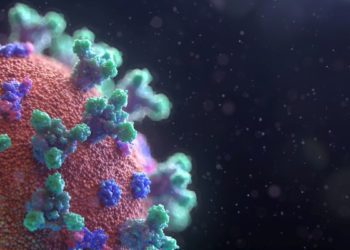Characteristics of COVID-19 in febrile infants 2 months of age and younger
1. In a case series of febrile infants age 60 days or younger admitted to a New York City hospital, no patient had severe outcomes.
2. None of the infants required supplemental oxygen or had abnormal chest x-ray findings.
Evidence Rating Level: 4 (Below Average)
Study Rundown: Coronavirus disease 2019 (COVID-19) has been reported to affect children less severely than adults. However, the largest study of children with COVID-19 suggests that those <1 year of age are at higher risk for severe illness. Of note, this prior work included hospitalized children and may have been biased towards children with more severe illness. This case series examined characteristics of COVID-19 in febrile infants age 60 days or younger, a population that is frequently hospitalized regardless of illness severity. The study was a mixed retrospective and prospective study and included infants who were admitted to a New York City hospital with fever. No infant was ill appearing or in respiratory distress at the time of admission. In slightly less than half of the infants, fever was the only presenting symptom, and no infants had severe outcomes. At 7-day follow up after discharge, none of the patients had been rehospitalized. Although based on a small sample size from a single center, this study suggests that infants age 60 days or younger typically have mild illness.
Click to read the study published today in Pediatrics
Relevant Reading: Epidemiology of COVID-19 among children in China
In-Depth [case series]: Infants were included if they were age 60 days or younger, had a documented temperature of 38 degrees Celsius or higher within the past 24 hours, and tested positive for novel severe acute respiratory syndrome coronavirus 2 (SARS-CoV-2). A total of 7 infants (mean age = 39 days, 86% male, 2 with underlying chronic medical conditions) were included in the study. Of those studied, 4 patients were admitted from the hospital emergency department, while 3 were direct transfers from outside hospitals. Severe illness was defined by (1) acute respiratory distress syndrome, (2) need for mechanical ventilation, (3) presence of sepsis or shock, (4) ICU admission or, (5) death. Median length of hospitalization was 2 days. Laboratory testing was largely unremarkable; median white blood cell count was 7.0 x 103/ µL and median C-reactive protein level was 1.2 mg/L. In addition, 2 infants had concurrent E. coli urinary tract infections.
Image: PD
©2020 2 Minute Medicine, Inc. All rights reserved. No works may be reproduced without expressed written consent from 2 Minute Medicine, Inc. Inquire about licensing here. No article should be construed as medical advice and is not intended as such by the authors or by 2 Minute Medicine, Inc.







